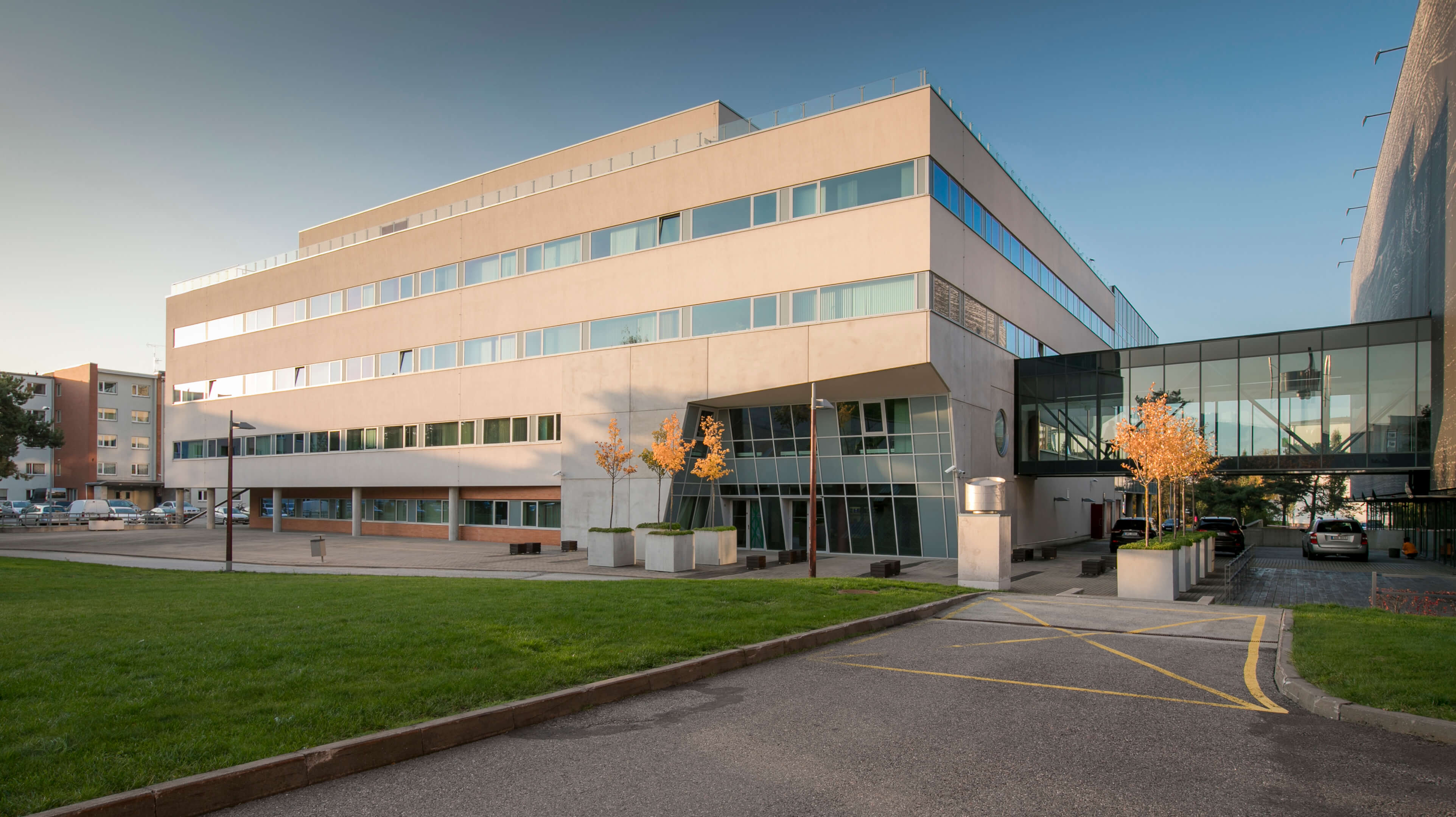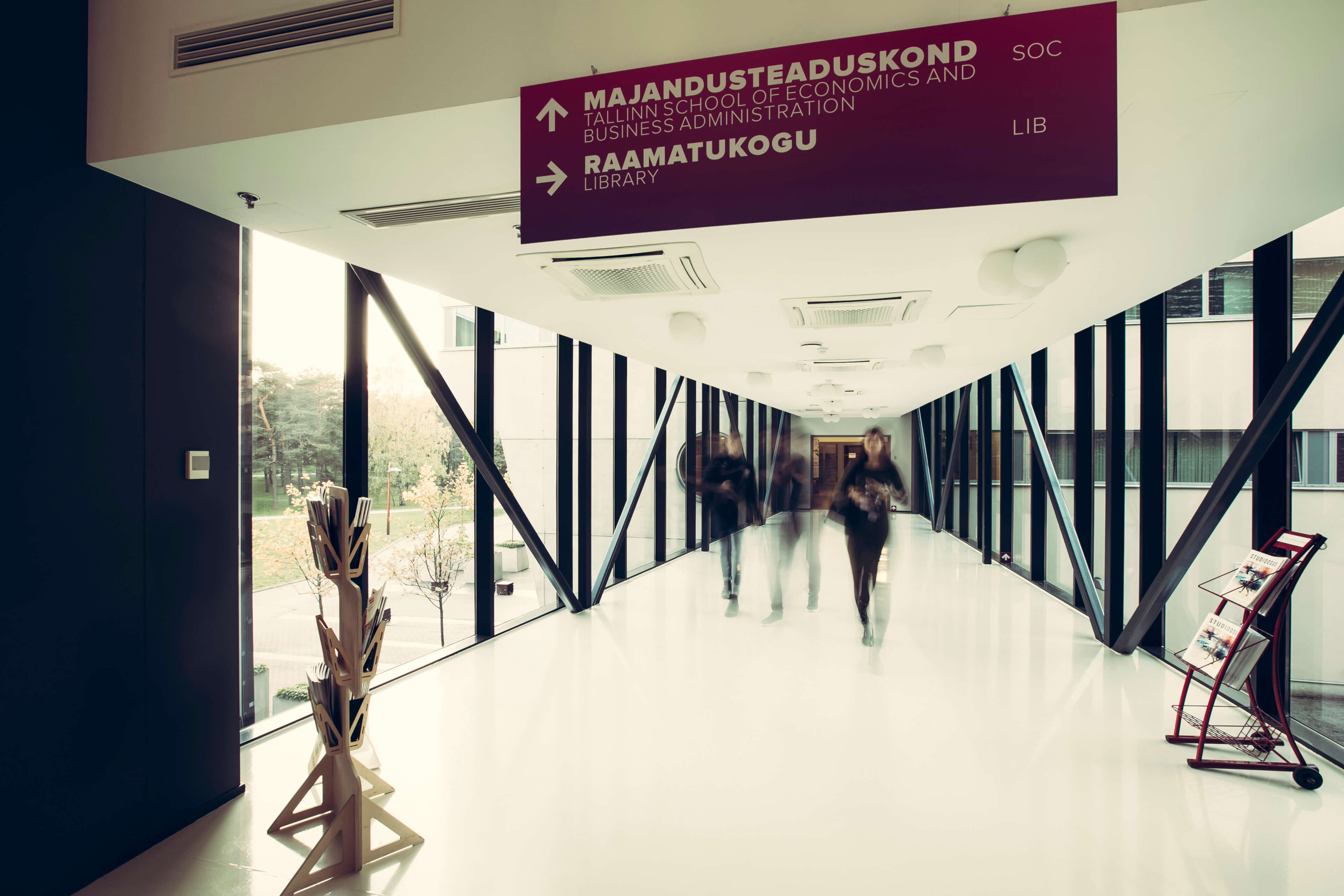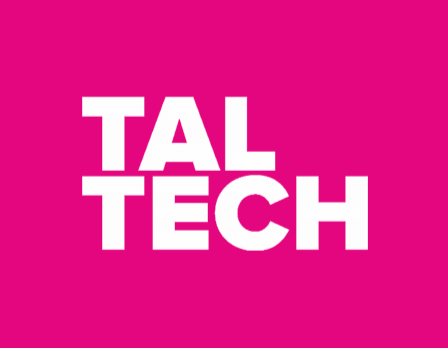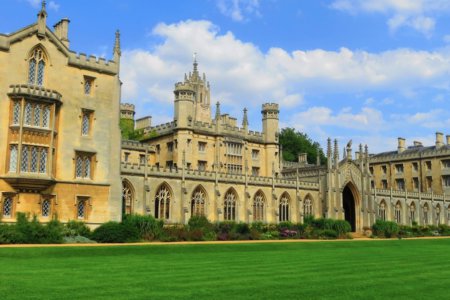Sandra Särav is one of those people who has career “flexicurity,” a portmanteau of flexibility and security. Armed with a Master of Arts in Law (Law and Technology) from TalTech Law School, she is able to move comfortably with the digital world’s breakneck speed evolution. “In contemporary digital society, our educational choices must be more astute than ever,” she says. “A lawyer can’t just be a lawyer anymore. Digital by default presumes a digitally intertwined walk of life.”
It’s a sentiment shared by the former President of Estonia Toomas Hendrik Ilves, who upon meeting Särav once told her that studying law and technology is “a very wise choice.” Her career trajectory since graduating confirms the versatility of her TalTech education.
She has taken part in a five-month placement at the European Commission, based in the EC Vice-President Andrus Ansip’s Digital Single Market team, where she applied her skills in various areas, from digital evidence to data protection and cybersecurity. After her stint in Brussels, she joined the Estonian Council of the EU Presidency team, coordinating digital policies from the capital and undertaking tasks like drafting legislation and writing speeches for the prime minister.

Source: TalTech Law School
In 2018, as the Global Affairs Director at the Estonian Government CIO Office, she promoted e-Estonia and fostered cooperation with bright digital talent from around the world. “Taking a look back at my degree studies and at my career path now, I can assure you that digital is the new normal – if our society keeps innovating, why should our career choices stand still?”
A law school may seem like an unlikely start for a digital policy expert, but Särav’s success speaks to the versatility of TalTech Law School’s programmes. Graduates are now leading managers and lawyers in a wide range of sectors beyond traditional practice. In the private sector, they are in banking, technology, medicine, startups, energy, and more. In the public and international sector, they can be found in the NATO Cooperative Cyber Defence Centre of Excellence, the UN Refugee Agency, Republic of Estonia Information System Authority, the Estonian Ministry of Interior’s Police and Border Guard Board agency and so forth.
It’s a natural progression from their multidisciplinary head start at TalTech Law School, a leading research unit in the region. The department regularly contributes expert opinions to the private sector, Estonian government, European Commission, UNESCO and WHO, on topics such as data protection, IT, intellectual property, and artificial intelligence. It collaborates with Europe’s influential think tanks and consulting offices like GIZ, CAPS, Deloitte, and leading law offices like Tehver & Co and Njord.
Faculty members are involved in projects in all continents except Antarctica, mainly in capacity building in Eastern neighbour states; in Central Asia in the area of rule of law and legal education; and in the Balkans in the area of media law. They also partner with well-known universities like KTH Royal Institute of Technology in Stockholm, University of Maastricht, Aalto University, University of Oslo, University of Lausanne, Tsinghua University, and Tokyo Institute of Technology.

Source: TalTech Law School
One of TalTech’s doctoral students, Alexander Antonov, delivered topical lectures on the latest developments in cybersecurity and AI governance at Ho Chi Minh City University of Law as part of the EU-funded Horizon 2020 project “Institutions for Knowledge Intensive Development: Economic and Regulatory Aspects in South-East Asian Transition Economies.”
These are the same experts who teach, guide and inspire students in TalTech’s Master of Arts in Law programme, using a combination of virtual tools, seminars and lectures. The two-year programme, offered entirely in English, is designed for students who have already completed a Bachelor of Arts in Social Sciences or a comparable degree.
In this programme fully accredited by the Estonian Ministry of Education and Research, students can specialise in Business Law or Law and Technology. The former covers the economy with a focus on digital market issues and regulations such as Fintech, Global Trade and Transnational Law, Online Commercial Law, Competition Law and Labour Law. The latter focuses on Artificial Intelligence, Data Protection, Cyber Security and Intellectual Property.
“It is possible to learn about the history of law in every traditional law school, but TalTech offers great insight into future technologies, trends and regulations and generates valuable experts on fields that are currently emerging,” says Paula-Mai Sepp, alumnus of the Law and Technology specialisation.
Learning at TalTech is hands-on. In both specialisations, students must undertake a team project, moot court or legal internship. In 2019, students even got to join the NATO-EU Roundtable 2019, a conference aimed at increasing the knowledge of young people in foreign and security policy by discussing the working principles of NATO and important topics related to the work and cooperation of NATO and the EU.

Source: TalTech Law School
It is this foundation of deep disciplinary knowledge, coupled with the training and insights to thrive across disciplinary, social and cultural boundaries, that shapes TalTech students into experts in law and the multiple disciplines related to it. Alumnus Bogdan Kelichavyi, elected as mayor of Kopychyntsi, in the western Ternopil region in Ukraine last November, is one of them.
Kelichavyi initially studied law in Ukraine, but moved to Estonia when he received a scholarship to study at TalTech. He found his international law education eye-opening. Most importantly, he could broaden his horizons by meeting different people. “I had people from all over the world in each of the groups I studied in,” he shares. “When you are among people of different cultures, you automatically become like the ambassador of your country. People ask you about the Maidan, about the war in Donbas.You have to be aware of all the events and tell the right things.”
Today, he’s set to start implementing positive change. After winning an election where he went to every house in his constituency and managed a team of 30, he’s ready to bring reform to his hometown. “When people come together, they can achieve a lot,” he says.













